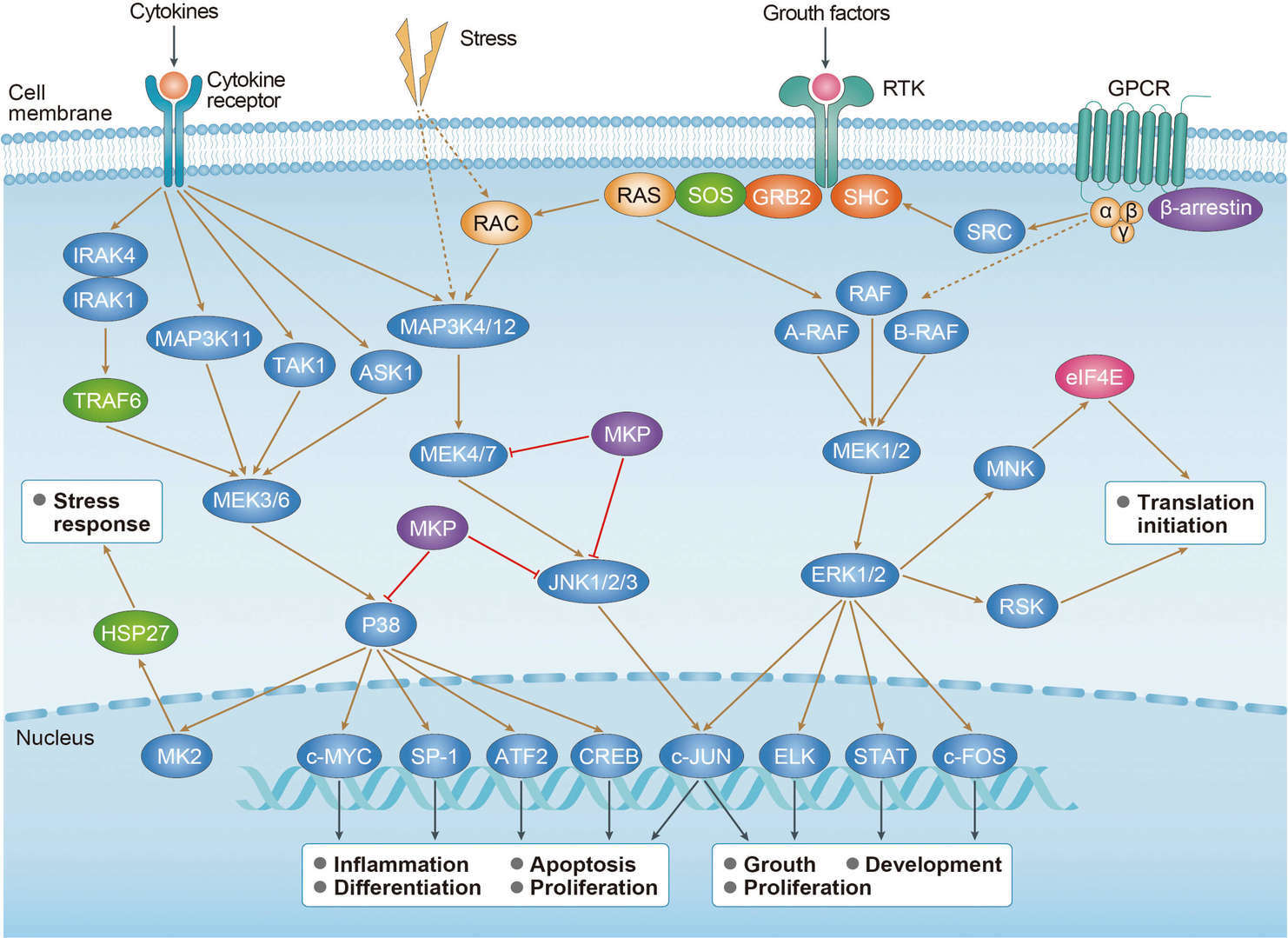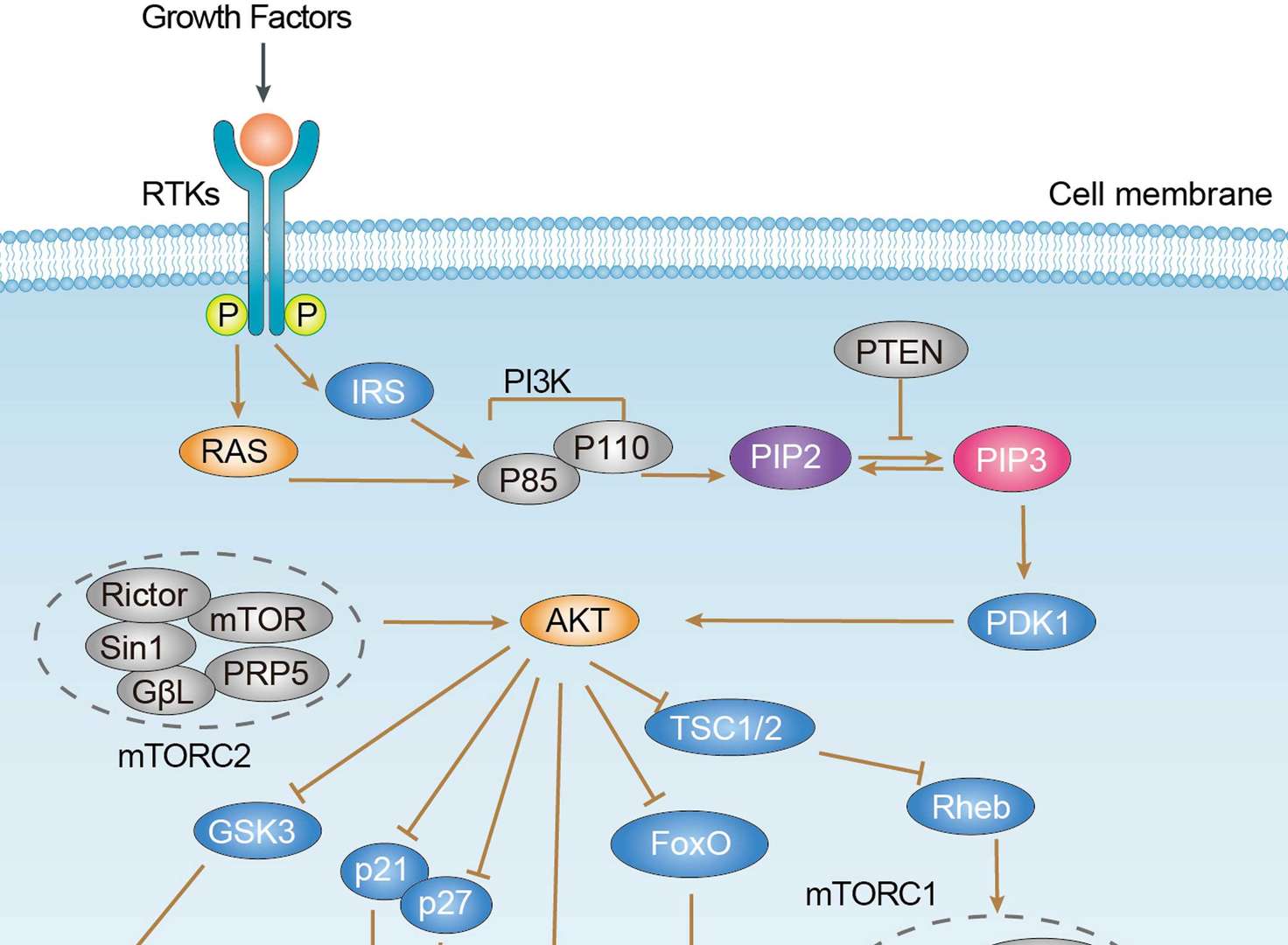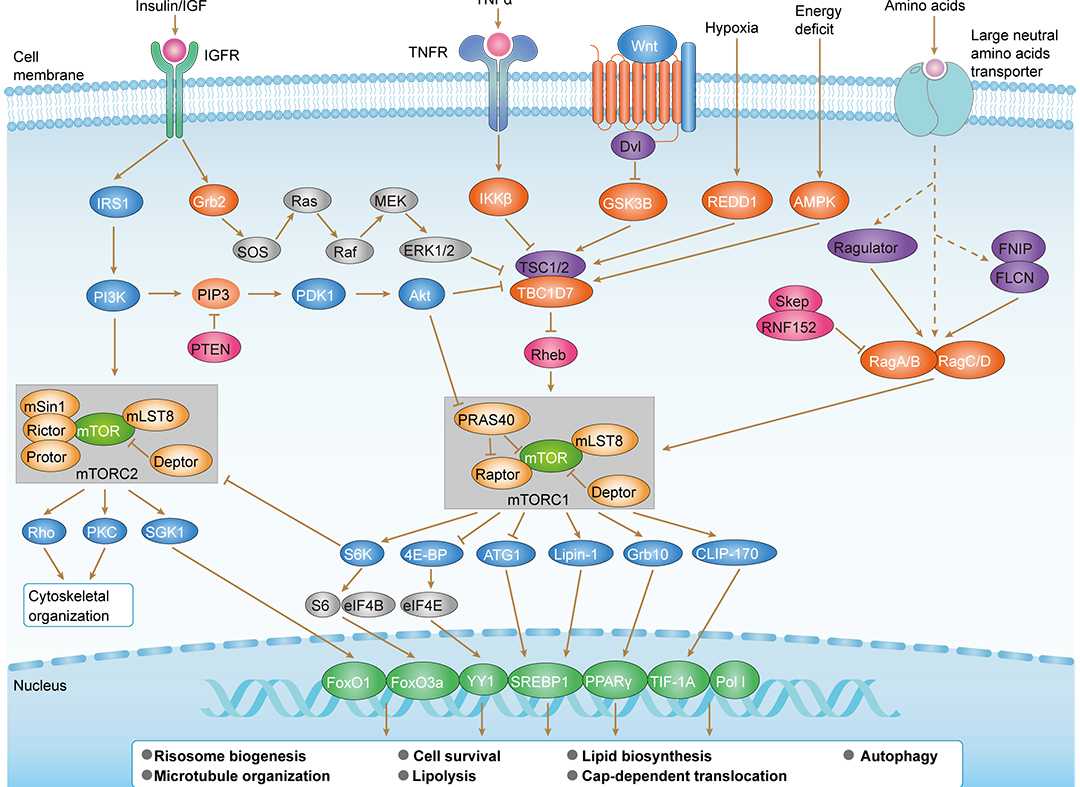Insulin Signaling Pathway
What is Insulin Signaling Pathway?
Insulin signaling is the pathway that regulates glucose homeostasis. It begins with the binding of insulin to the extracellular region of the insulin receptor (IR). Insulin is a peptide hormone that is secreted by beta cells of pancreatic islets to control the blood glucose levels. IR is a heterotetrameric glycoprotein that consists of two extracellular (α) and two transmembrane (β) subunits, bound together by disulfide bonds. The binding of insulin to IR induces a conformational change, resulting in the autophosphorylation of many tyrosine residues present in the β subunit. These tyrosine residues are recognized by phosphotyrosine-binding (PTB) domains of insulin receptor substrate (IRS) proteins. Subsequently, these IRS proteins are also phosphorylated, inducing the formation of a complex with PI3K utilizing SH2 domains. PI3K phosphorylates PIP2, leading to the formation of PIP3 and activation of PDK1/2. AKT is phosphorylated and activated by PDK1/2, subsequently triggering the inactivation of glycogen synthase kinase 3 (GSK3), thereby inhibiting glycogen synthesis. The activation of AKT is also responsible for GLUT4 translocation to cellular membrane and glucose inflow.
Function of Insulin Signaling Pathway
The main function of the insulin signaling pathway is to regulate blood glucose homeostasis in the body via regulating glucose storage and uptake as well as protein and lipid metabolism. Insulin binds to IR, triggering a series of intracellular cascades to regulate glucose homeostasis. For example, the inactivation of GSK3 by AKT can inhibit glycogen synthesis, promote glucose storage as glycogen, and trigger the dephosphorylation of eIF2B thereby promoting protein synthesis. The mammalian target of rapamycin (mTOR) can be also activated by AKT, which is also involved in protein synthesis through p70 ribosomal S6 kinase (p70s6k) and suppression of 4E-BP1. Furthermore, the insulin signaling pathway is also associated with mitogenic response. The activation of the MAPK cascade regulated by insulin signaling may lead to mitogenic responses.
Diseases associated with Insulin Signaling Pathway
Dysfunctions in the insulin signaling pathway are associated with many serious chronic diseases, such as diabetes, cardiovascular and kidney disease, as well as cancer. Diabetes is the most common disease caused by reduced insulin signaling. It is caused by abnormally high levels of sugar glucose in the blood. There are two types of diabetes, type I diabetes and type II diabetes. The former is caused by the absence or insufficient production of insulin. The latter is caused by insulin resistance. Damage to any part of the insulin signaling pathway can lead to insulin resistance, which ultimately gives rise to metabolic syndrome and type II diabetes. Furthermore, insulin resistance has also been indicated in some neurodegenerative diseases such as Alzheimer's and Parkinson's.
Related Pathways
For research use only. Not intended for any clinical use.
This site is protected by reCAPTCHA and the Google Privacy Policy and Terms of Service apply.


 MAPK Signaling Pathway
MAPK Signaling Pathway PI3K-AKT Signaling Pathway
PI3K-AKT Signaling Pathway mTOR Signaling Pathway
mTOR Signaling Pathway